The fact-checking boom: A growing industry or a fading promise?

In a world increasingly shaped by algorithms, social media bubbles and partisan divide, truth feels more elusive than ever. The International Fact-Checking Day is a day to celebrate the important role fact-checkers play in defending truth against the overwhelming tide of information disorder—or so we are told. Does fact-checking actually make a substantial dent in the deluge of disinformation swamping our digital lives?
Make no mistake, fact-checking has scaled up dramatically, with at least 451 projects, organisations, and campaigns active in more than 100 countries, according to Duke Reporters' Lab. From the early days of outfits like Snopes tackling urban legends to the rise of PolitiFact and similar initiatives during the 2008 US presidential election, the practice has become a worldwide movement.
Considering this scale, fact-checking is no longer the scrappy side hustle of underpaid journalists. It has become a marketable service that requires diverse funding streams. Big Tech platforms like Facebook and Google have poured millions into fact-checking initiatives, philanthropic grants, and corporate sponsorships. Even government-backed initiatives help keep the lights on. Yet, none of these funding streams are immune to accusations of bias or agenda-setting.
On the other hand, non-profit fact-checking is a financial orphan. Some have self-sustaining models, others don't. Beyond being an alternative to legacy news media, many have expanded their scope, incorporating OSINT (open-source intelligence) techniques, watchdog journalism, advocacy, and citizen journalism. Automated fact-checking using machine learning or AI chatbots have also grown vital alongside human capacity. For instance, Elon Musk's AI bot Grok has been throwing a wrench in propaganda machinery with oddly satisfying sarcasm and slang, if any X user asks for it. Unlike a flesh-and-blood fact-checker struggling to wade through the deluge of information to verify and counter disinformation, Grok presents evidence-backed rebuttals almost instantly. Despite its drawback in producing quality reports, it is at least able to effortlessly debunk fragile and blatant falsehoods.
The concept of "disinformation market value" is not explicitly defined in standard economic terms. However, we can interpret it as the financial value that stems from the creation, dissemination and monetisation of disinformation. In 2021, a special report by Newsguard, an internet trust service, estimated that publishers of misinformation and disinformation received $2.6 billion annually. However, the actual propaganda war is perhaps more daunting and decentralised.
Today, even lone influencers and loosely coordinated networks can be harder to detect, let alone their financial incentives. Worse, the investment in AI-driven fact-checking pales in comparison to the multi-billions being funnelled into generative AI tools that can craft convincing synthetic media in seconds, playing a dual role.
Regardless of their funding models, establishing a reputation for independence, non-partisanship and objectivity has been a major challenge for many fact-checking platforms. However, even more pressing is the question of impact. Has fact-checking actually curbed disinformation? Have you ever heard of a fact-check report that has gone viral? In contrast, a well-orchestrated lie on social media can rack up millions of views in hours, often faster than the dry recitations of fact. In April 2013, when the Twitter account of the Associated Press was compromised, a false claim was posted about explosions at the White House. The misinformation triggered immediate panic in financial markets, causing the S&P 500 to drop one percent and wiping out $136.5 billion in market value before the truth was clarified. This imbalance reflects a fundamental disadvantage as fact-checking remains largely reactive, chasing falsehoods after they have already metastasised.
However, studies suggest that fact-checking can effectively correct misinformation and improve public understanding, though its impact varies depending on context and audience. There is still considerable ambiguity regarding when and how fact-checking affects beliefs. Prof Sander van der Linden of the University of Cambridge, author of multiple award-winning book Foolproof: Why Misinformation Infects Our Minds and How to Build Immunity, says, "Fact-checking does work… Studies provide very consistent evidence that fact-checking does at least partially reduce misperceptions about false claims."
Beyond this argument, its future could still hold promise if it evolves beyond its current constraints. One path forward lies in rethinking scale. Rather than chasing every falsehood, fact-checkers could focus on high-impact targets—disinformation campaigns with clear societal stakes, like election interference or public health crises. Another change could be to engage the public. Fact-checking needs a complete overhaul in how we incentivise and create demand for truth. Thus, the burden can no longer be on the fact-checkers to find the facts, and we should instead try to weave fact-checking deeper into the fabric of our society. And perhaps most radically, fact-checkers could also pivot from debunking to pre-bunking, inoculating people against disinformation before it takes root, as experiments in "media literacy vaccines" have begun to explore.
The growth in number and scope of fact-checking projects is a testament to our collective hunger for clarity in a chaotic world. As someone who has been involved in fact-checking since its early days, I believe this industry has the potential to scale, professionalise, and evolve to meet the challenges ahead.
Sams Wahid Shahat is information integrity researcher at Tech Global Institute.
Views expressed in this article are the auhtor's own.
Follow The Daily Star Opinion on Facebook for the latest opinions, commentaries and analyses by experts and professionals. To contribute your article or letter to The Daily Star Opinion, see our guidelines for submission.

 For all latest news, follow The Daily Star's Google News channel.
For all latest news, follow The Daily Star's Google News channel. 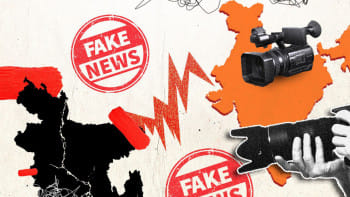
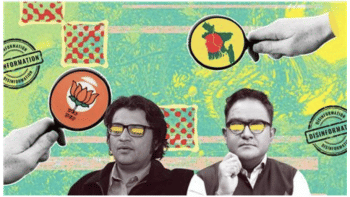
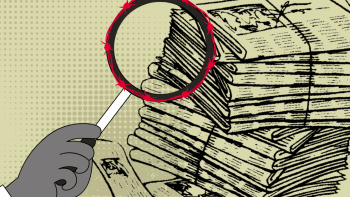



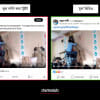


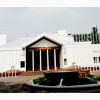

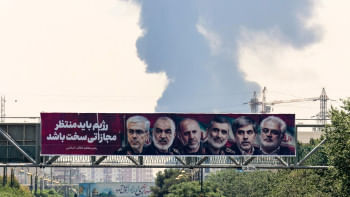
Comments